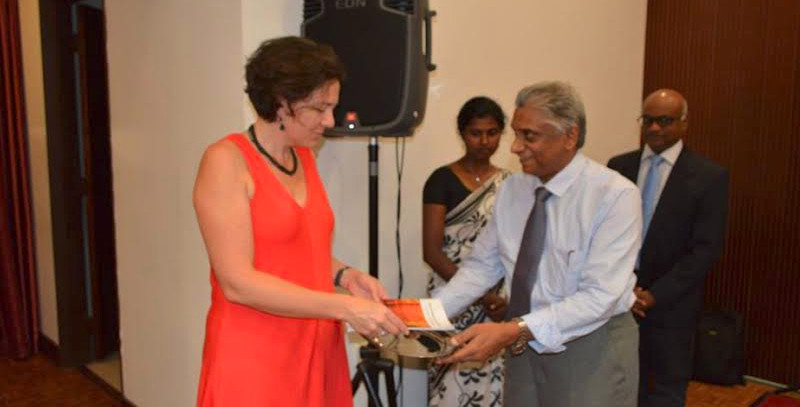News & Events
Report on enforced disappearances launched by CHRD

Download Book
The launch of the research report on Enforced Disappearance in Sri Lanka: Lessons from CHRD Advocacy
was held on 4th September 2015, at the Bandaranaike Memorial International Conference Hall (BMICH)
in Colombo.
CHRD’s report reflects on concerns from its own advocacy and offers constructive recommendations to
promote truth and justice for families of the disappeared. Addressing enforced disappearances is critical
in dealing with the past.
As the LLRC acknowledged, families have a right to know the whereabouts of their loved ones and know
the truth about what happened. The LLRC further acknowledged the Sri Lankan government’s obligation
‘to ensure that these allegations are properly investigated into and perpetrators brought to justice’.
Foreign Minister Mangala Samaraweera committed to establishing a new mechanism to investigate
disappearances in coordination with the ICRC. However, in Sri Lanka, where there have been nearly a
dozen flawed commissions on disappearances since 1991, there must be assurance that any new
mechanism will be credible. CHRD’s new report adds to the current discussions by exploring the
roadblocks to truth and justice in CHRD’s own advocacy that must be considered in designing a credible
mechanism.
In short, CHRD has expressed several concerns with the Paranagama Commission, including: witness
harassment, ad hoc expansions of the mandate in time period (now covering 1983-2009) and
substantive scope (now covering alleged war crimes gross translation errors, lack of gender sensitivity or
contextual knowledge, and other technical problems. The Paranagama Commission has failed to address
these concerns, and families of the disappeared have begun to boycott proceedings in large numbers.
In each of CHRD’s habeas corpus cases, State Respondents file Objections that fail to respond to
admissible eyewitness or documentary evidence indicating State responsibility. In nearly every case,
families face harassment and threats because of their litigation. Of CHRD’s 21 pending cases, 14 relate
to disappearances on or around May 18, 2009, following surrender to the 58th Division of the Sri Lankan
Army at the Wattuvahal Army Camp at Mullaitivu, and 7 relate to other disappearances by the Army,
Navy, and TID.
The launch commenced with Dr. Mahesan Ganesan, Chairman giving an introduction to the publication.
Thereafter, K.S. Ratnavale, Director spoke on roadblocks to justice and accountability in terms of habeas
corpus filed on behalf of surrendees amongst the disappeared while Rev. V. Yogeswaran, Chairperson,
CPPHR touched on the concerns raised with the Presidential Commission on Missing Persons. Attorneys-
at-law Ermiza Tegal and Ranitha Gnanarajah spoke of their experience, challenges and way forward on
their work on the Matale mass grave and Mannar mass grave, respectively. Voices of missing persons
too was reflected by family members Vathana Sunthararaj Sandhya Ekneligoda, Kanthasamy
Ponnammah, and Anton Joseph Sithamparam.
Mangaleswary Shanker, Chief Executive Officer, ended the launch by outlining recommendations to the
State and the international community to ensure a credible mechanism to investigate disappearances
and rebuild trust with families of the disappeared.
First copies of the Report was handed over to the dignitaries such as UN Resident
Coordinator, Mr. Subinay Nandy, Deputy High Commissioner of the United Kingdomto Sri Lanka
Laura Davies, Chief of Political Section of the US Embassy, Kelly Billingsley as well as the political officers
of the EU Commission and Indian Embassy. Chairman of the Presidential Commission to Inquire into
Complaints of Missing Persons, Justice Maxwell Paranagama also received the first copy of the report.
Contact Details
No: 33
Sagara Road
Bambalapitiya
Sri Lanka
Telephone: (+94) 11 250 6001
Fax: (+94) 11 250 6002



